MODELIO SD JAVA
Key features
Modelio SD Java enables Java developers, designers and architects to gain in efficiency by constantly ensuring code / model consistency.
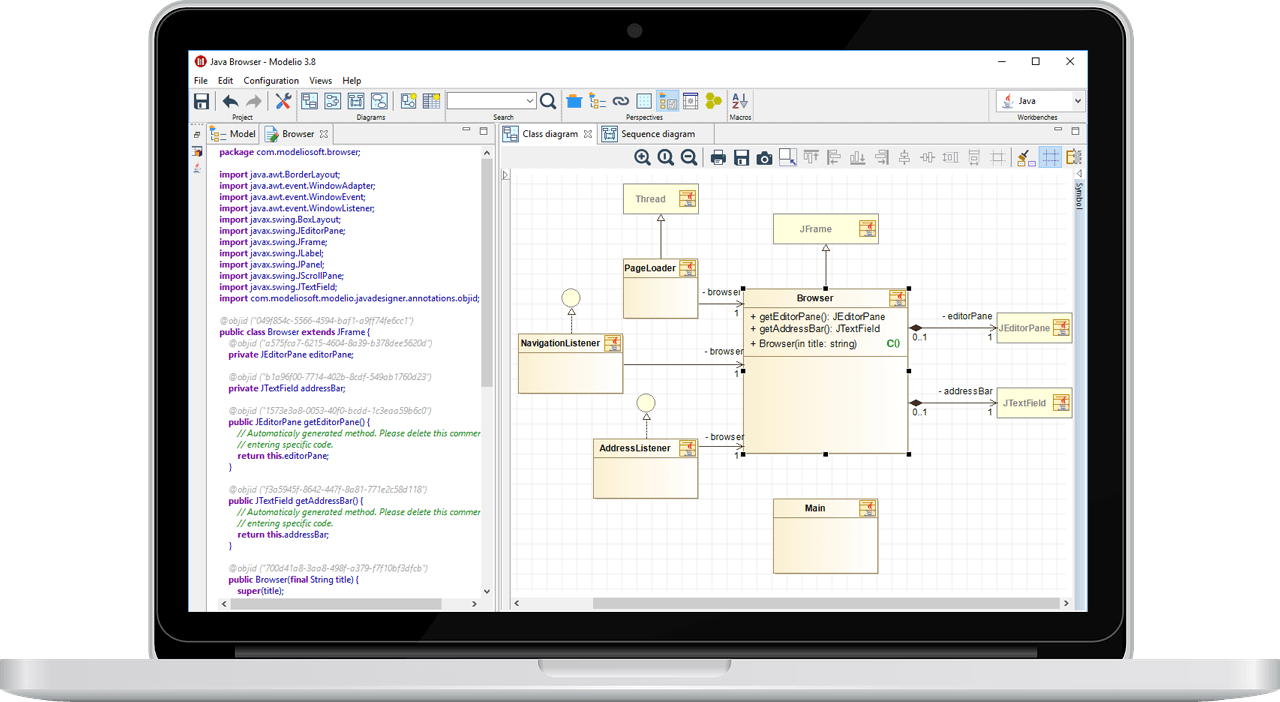
Complete Java code generation from UML
Modelio SD Java generates complete code for your Java applications based on UML models and additional Java code elements (operation code, annotations) attached to models.
Modelio produces standard-compliant Java code, enables developer implementation choices to be applied, and provides wizards that generate Java accessors and utility functions.

Reverse engineering Java / UML
Modelio SD Java analyzes your application (.java, .jar), and builds UML models and diagrams (class and package). The product guarantees that your UML architecture and your Java code are constantly maintained in sync, in both model-driven or full round-trip modes whatever the IDE (Eclipse, NetBeans, IntelliJ, ...).

Application of Design Patterns
Modelio provides a model pattern creation functionality, a powerful mechanism for quickly implementing design patterns used in the Java language.
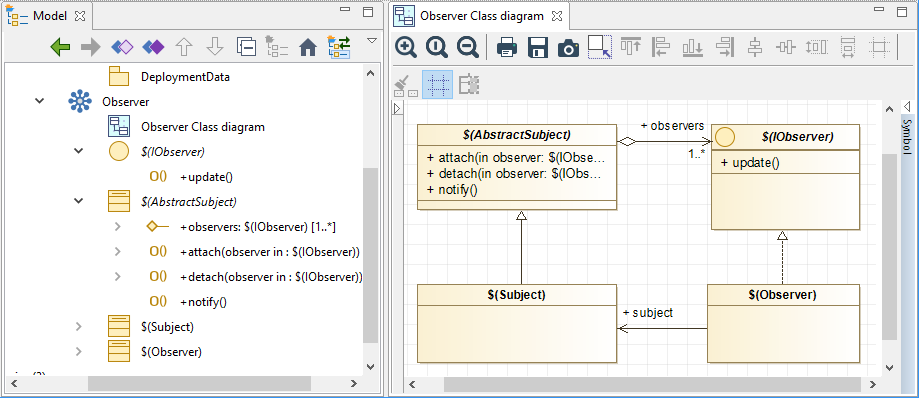
Java dedicated automatic modeling: Accessors, annotations, utility methods ...
The IDEs are used to create utility methods (equals, hashCode, toString) from a class definition. However, they do not maintain them, which can cause well-known problems, such as bugs and maintenance work. Modelio SD Java keeps the Java code consistent, by reversing it and keeping generation "up to date".
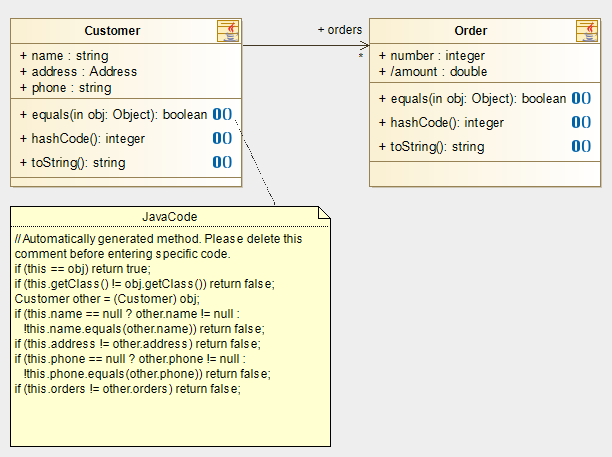
Enhanced Javadoc generation
Never before will you have seen Javadocs as attractive as those produced by Modelio. With Modelio, you can automatically improve all the Javadocs belonging to your existing applications, by automatically inserting UML diagrams, with an HTML inter-diagram browsing feature. Javadoc comments can be accessed while browsing the model, and are kept permanently in sync with the model and the Java code. These Javadoc comments can also be reused to generate other documents with Modelio (architecture documents, audit documents, etc...).
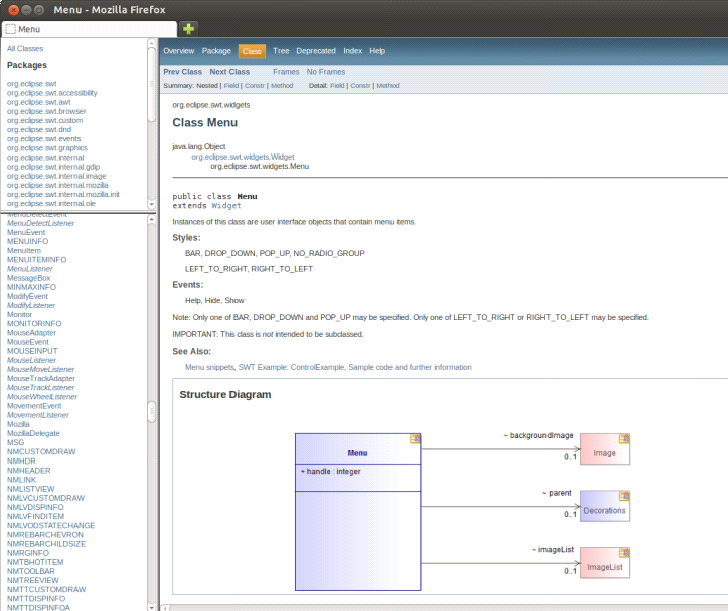
JUnit test generation
- Creation of the test model from a Java model
- Update of an existing test model
- Detection of deprecated tests by listening from classes and method suppressions
- Cleaning a test model of its deprecated tests
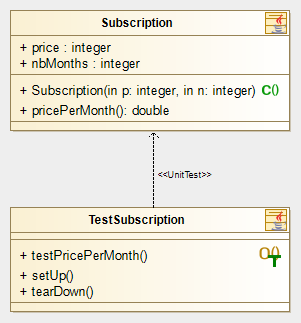
Need more information? We can help you
Please fill out this form and we will get back to you rapidly or you can email us directly (This email address is being protected from spambots. You need JavaScript enabled to view it.) or call us at +33 1 30 12 18 40.




